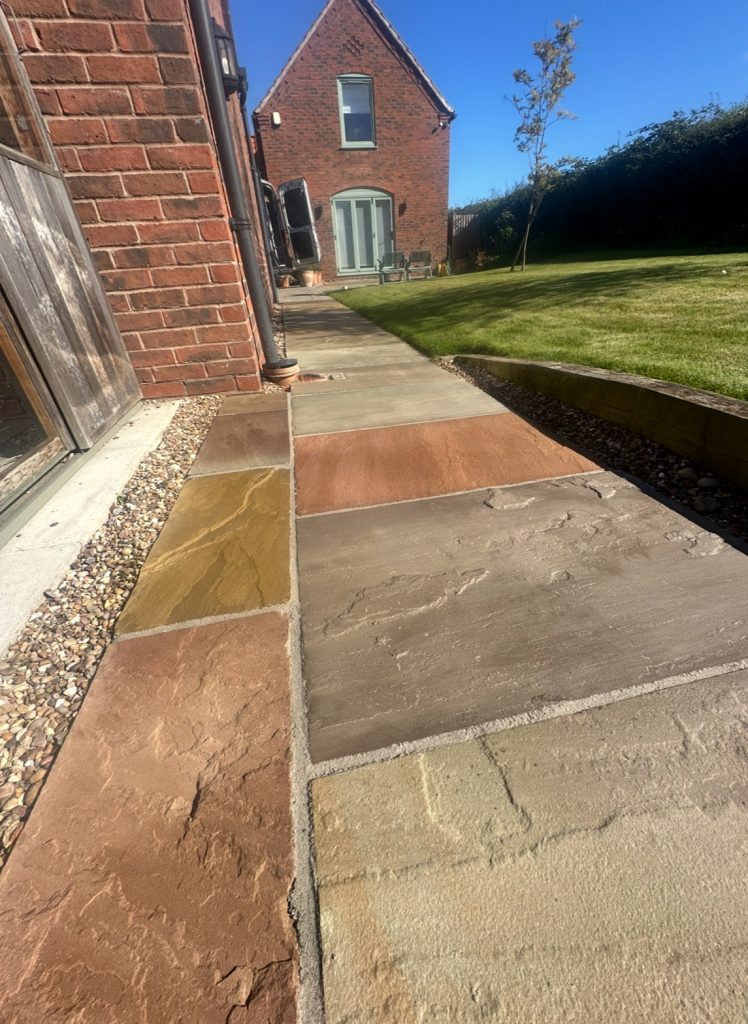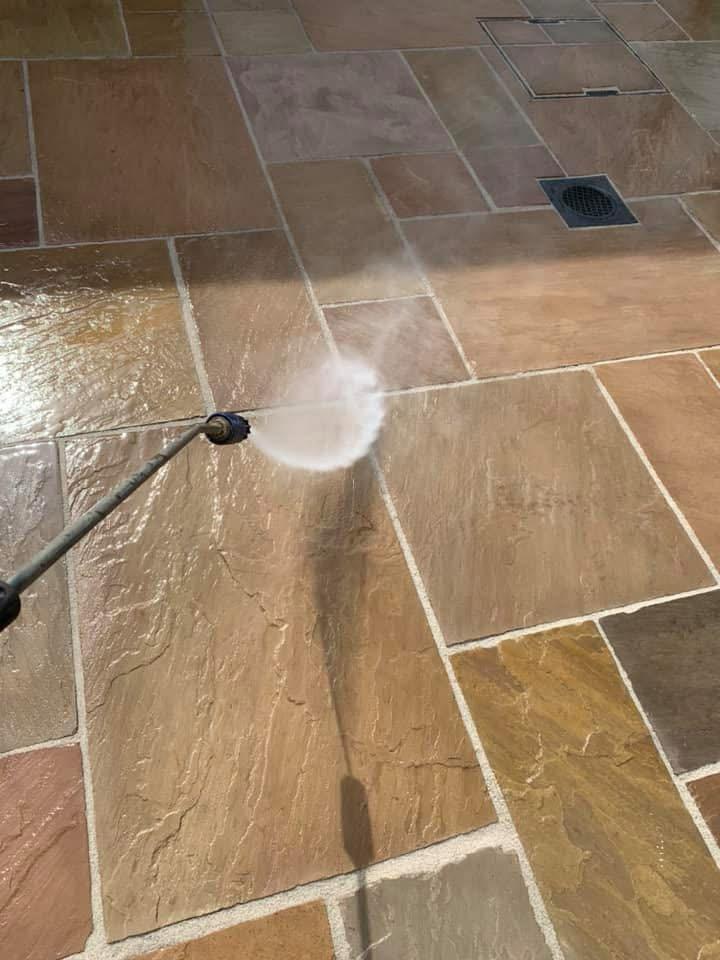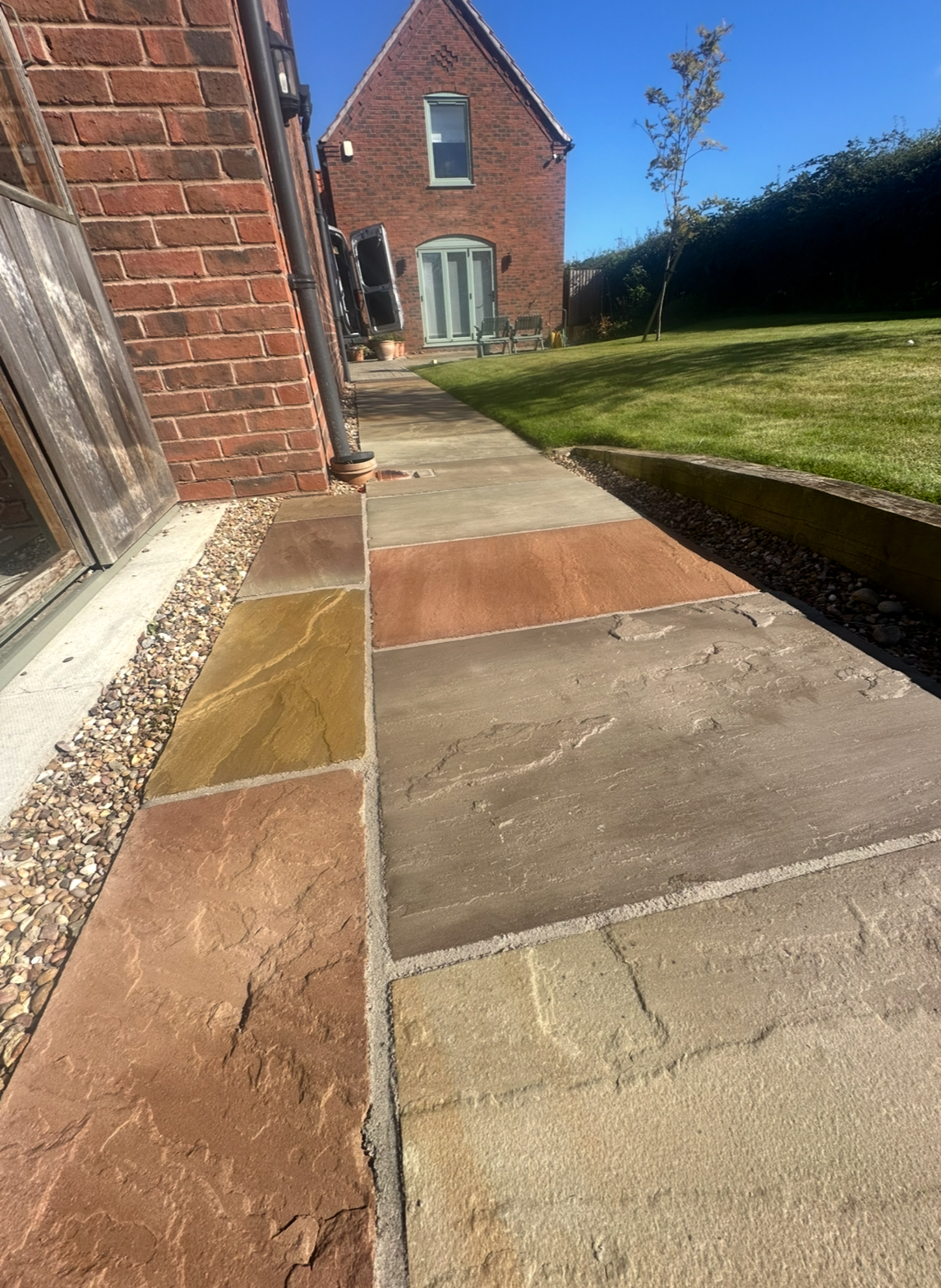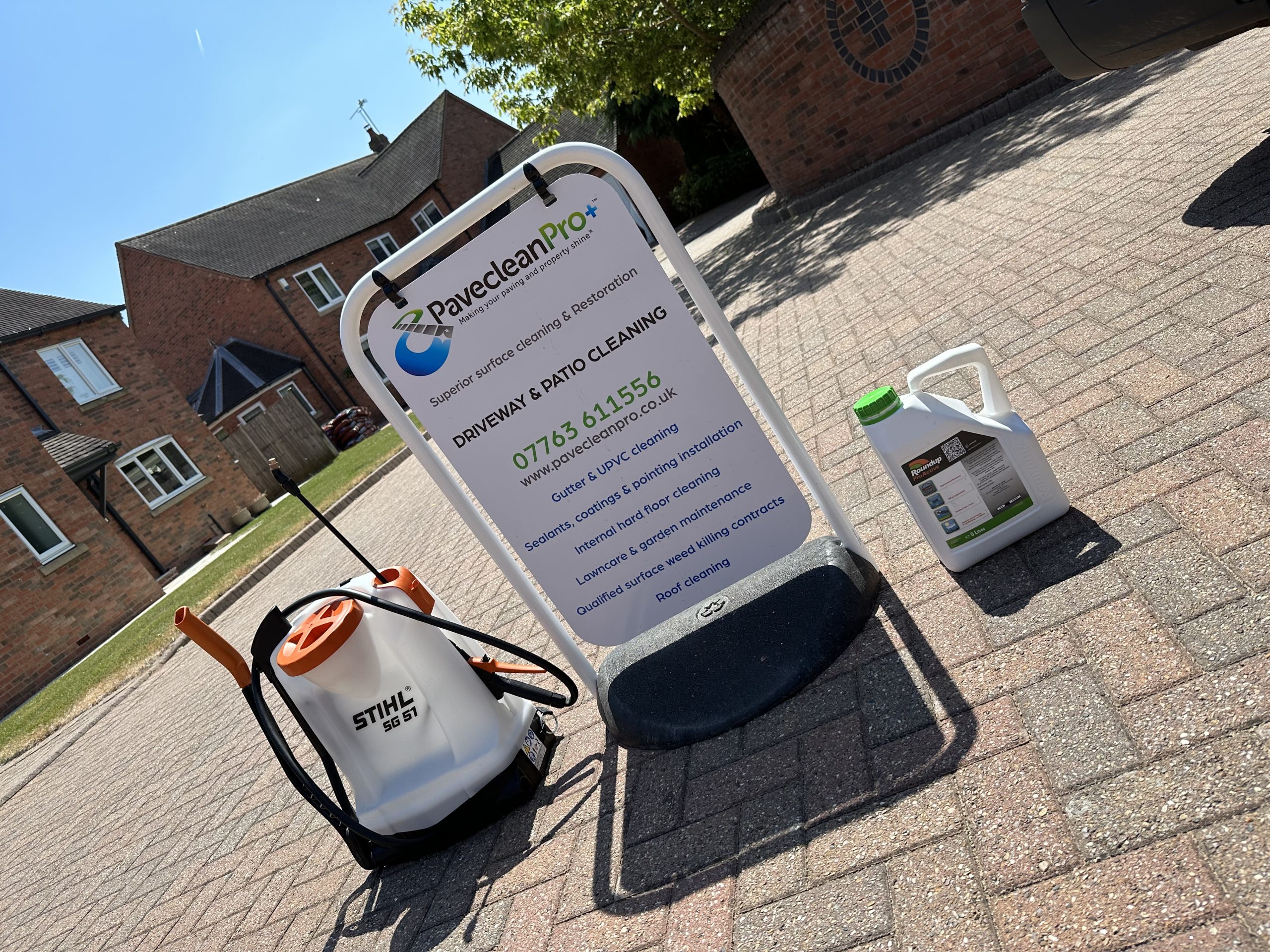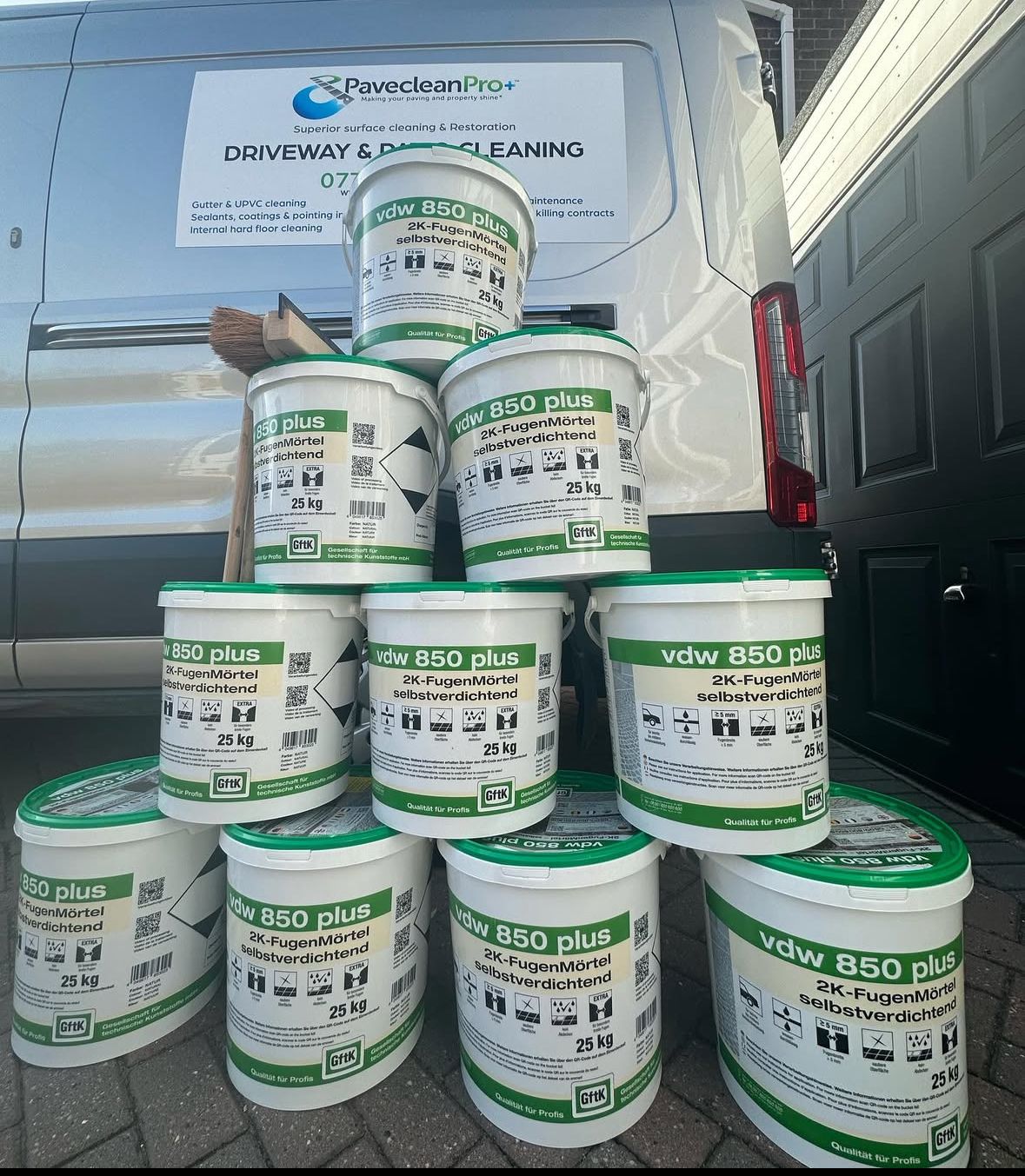Benefits & negatives to sealing surfaces
So, you have chosen the right surface, had it installed, and you’re really pleased with the way it looks. The contractors have left and it’s time to enjoy your new outdoor area now it’s ready to use! Or perhaps you inherited surfaces when you moved in and don’t really know how to protect them or even if you should.
You may have read about sealing patio or drive surfaces and had a few bits of advice here and there but don’t really know much about why it’s needed and what the benefits are.
Here at Paveclean Pro, we seal lots of surfaces annually and receive lots of questions. We have put together a list of our most frequently asked questions and our answers in an effort to help you make your sealing decision easier.
Do all surfaces need sealing?
The answer in short is, no. Not all surfaces require sealing. There seems to be a long list of product types out there that lead us to think that we should seal every single surface but that’s not always the case. Porcelain for example, tends to not need to be sealed as it is very low porosity in its structure. You will however find porcelain sealers on the market.
Natural Stones
Natural stones are the No1 surface that we feel benefits the most from being professionally sealed due to how porous they tend to be. Natural stone left unsealed can soon start to pull dirt into the stone as well as a place where the dreaded black spot lichen bacteria can start to grow and thrive within the stone itself.
A beautiful natural stone patio if left unsealed and unloved can soon require a full restoration to get it back to looking great again but by sealing soon after the patio being laid it can be protected from the day it’s sealed.
Block paving
Block paving certainly can be sealed in certain circumstances, but not always. It really needs consideration before jumping straight into having it sealed.
Block paving is designed to be permeable and for the rainwater to drain through the surface, but some sealers can fully seal the paving so that it is watertight. This can lead to many flooding issues, especially if the fall of the paving runs towards the house or garage.
There have been many flooded properties and incidents due to people sealing driveways with the wrong products and poor choices. Until there is heavy rainfall, you won’t see the full impact on where the water then runs to. Any drives where the paving falls towards the house and there isn’t adequate drainage, then this really shouldn’t be sealed.
If the paving levels flow the water towards the footpath or roadway, you would only be legally able to seal if there is sufficient drainage at the end of the driveway so that we remain SuDS compliant by law which helps manage surface run off and manage flood risks.
A professional site survey and consideration must be made to see if sealing is possible.
Out of all the drives we are asked to seal, only around 20% of these are carried out due to not meeting the requirements.
Weeds
The No1 reason homeowners always ask for sealing is to help combat the dreaded weeds coming through. Although a well installed sealer can help, it certainly will not stop weeds forever and even the best sealers start to break up over time. We generally advise to clean, sand and then maintain with a weedkilling maintenance programme as an option where sealing isn’t appropriate or sufficient funds aren’t available for the works.
Does sealing stop surfaces getting dirty?
No, sealing does not prevent surfaces getting dirty, but it does prevent dirt penetrating the stone and allows surfaces to be cleaned much easier and get brilliant results, keeping your new surface looking new for much longer.
It also prevents any accidental spillages such as drinks and barbecue fats from penetrating the stone. Surfaces that have been sealed will still require routine maintenance cleans the same as unsealed surfaces.
Does it need to be dry to seal?
Yes, it needs to be dry and mild, ideally above 15c. This is why our sealing season runs April to October to give us the best conditions for success. Here at Paveclean Pro, we use weather radar apps and common sense with regards to our coating installations and discuss dates and times together with our clients to try and work around the good old British weather! Having flexibility on dates is key here.
Is sealing expensive?
Sealing surfaces professionally certainly isn’t cheap but for the amount your surfaces cost to install initially it is certainly worth looking at protecting your investment. As a general rule of thumb, to protect your surface it costs approximately 10-15% of the cost of installation. For example, if your new patio was £5,000 then you would be looking at around £500-£750, which includes the material costs for quality professional grade sealing products – which are not cheap!
Colour enhancer & Wet look sealers
As well as clear sealers, we can also offer sealers that can further enhance your stone. We are massive fans of the natural stone colour enhancer sealers that bring out the natural colours in a beautiful way and this is our most common sealer type that we install each season.
We can also offer the glossy wet look if that’s the finish you are looking for. These sealers are a bit more expensive but worth it in our opinion to achieve that shine.
Protecting your investment
The best way to sum up, is to say that ultimately if your surface is suitable for sealing, then you should seal to protect your investment – you certainly wouldn’t buy an Aston Martin and then skimp on the paintwork protection! The same concept applies to good quality surface installs.
Get them sealed and protected every few years and they will stay looking good a lot longer than without.
We hope this helps and please get in touch if you have any questions.
– The Team @ Paveclean Pro Ltd
